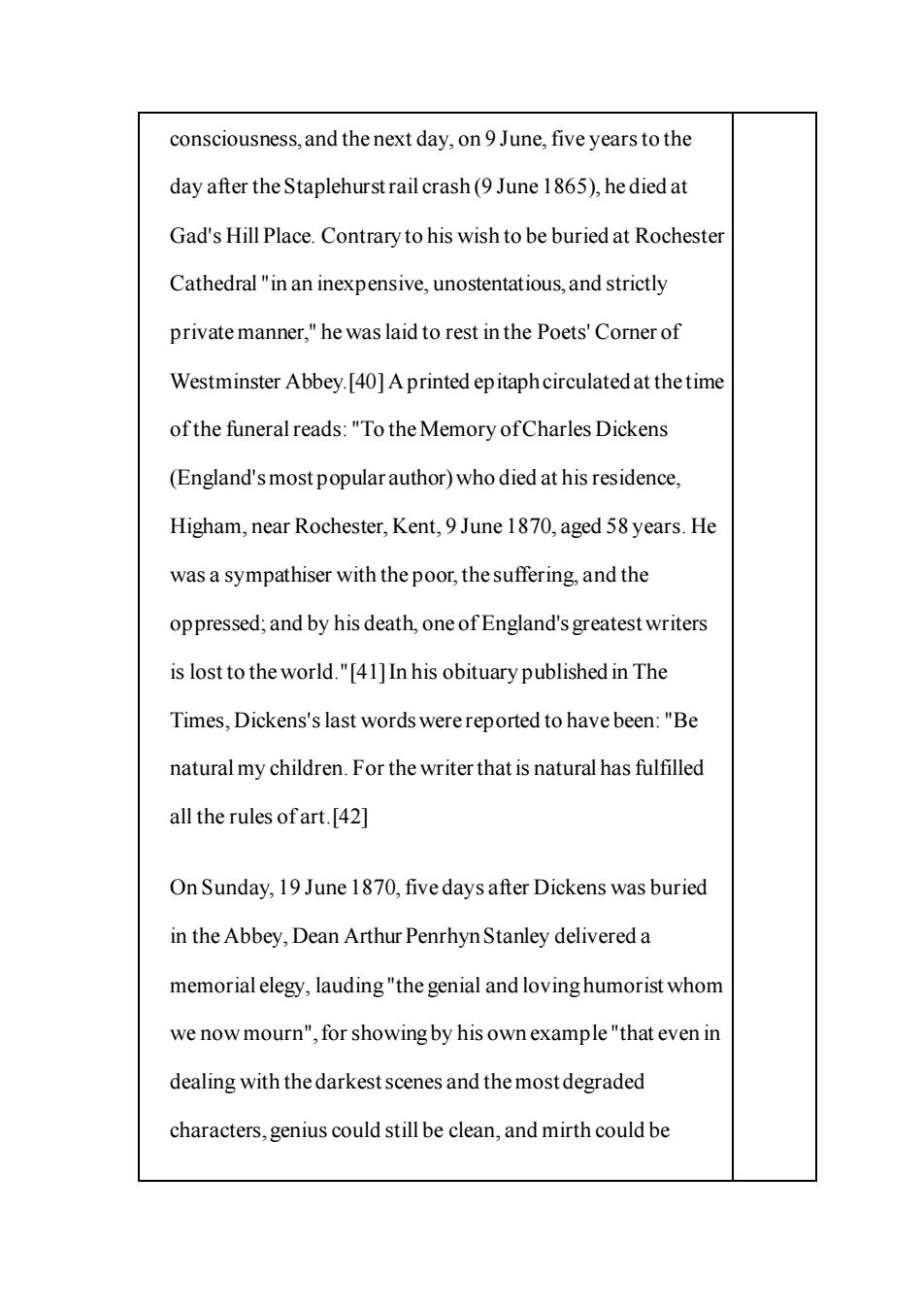正在加载图片...

consciousness,and the next day,on 9 June,five years to the day after the Staplehurstrail crash(9 June 1865),he died at Gad's Hill Place.Contrary to his wish to be buried at Rochester Cathedral"in an inexpensive,unostentatious,and strictly private manner,"he was laid to rest in the Poets'Corner of Westminster Abbey.[40]Aprinted epitaphcirculatedat thetime ofthe funeral reads:"To the Memory ofCharles Dickens (England's most popular author)who died at his residence, Higham,near Rochester,Kent,9 June 1870,aged 58years.He was a sympathiser with the poor,the suffering,and the oppressed;and by his death,one of England's greatest writers is lost to the world."[41]In his obituary published in The Times,Dickens's last words werereported to have been:"Be natural my children.For the writer that is natural has fulfilled all the rules ofart.[42] On Sunday,19 June 1870,five days after Dickens was buried in the Abbey,Dean Arthur Penrhyn Stanley delivered a memorial elegy,lauding "the genial and loving humorist whom we now mourn",for showing by his own example "that even in dealing with the darkest scenes and the most degraded characters,genius could still be clean,and mirth could be consciousness, and the next day, on 9 June, five years to the day after the Staplehurst rail crash (9 June 1865), he died at Gad's Hill Place. Contrary to his wish to be buried at Rochester Cathedral "in an inexpensive, unostentatious, and strictly private manner," he was laid to rest in the Poets' Corner of Westminster Abbey.[40]A printed epitaph circulated at the time of the funeral reads: "To the Memory of Charles Dickens (England's most popular author) who died at his residence, Higham, near Rochester, Kent, 9 June 1870, aged 58 years. He was a sympathiser with the poor, the suffering, and the oppressed; and by his death, one of England's greatest writers is lost to the world."[41]In his obituary published in The Times, Dickens's last words were reported to have been: "Be natural my children. For the writer that is natural has fulfilled all the rules of art.[42] On Sunday, 19 June 1870, five days after Dickens was buried in the Abbey, Dean Arthur Penrhyn Stanley delivered a memorial elegy, lauding "the genial and loving humorist whom we now mourn", for showing by his own example "that even in dealing with the darkest scenes and the most degraded characters, genius could still be clean, and mirth could be